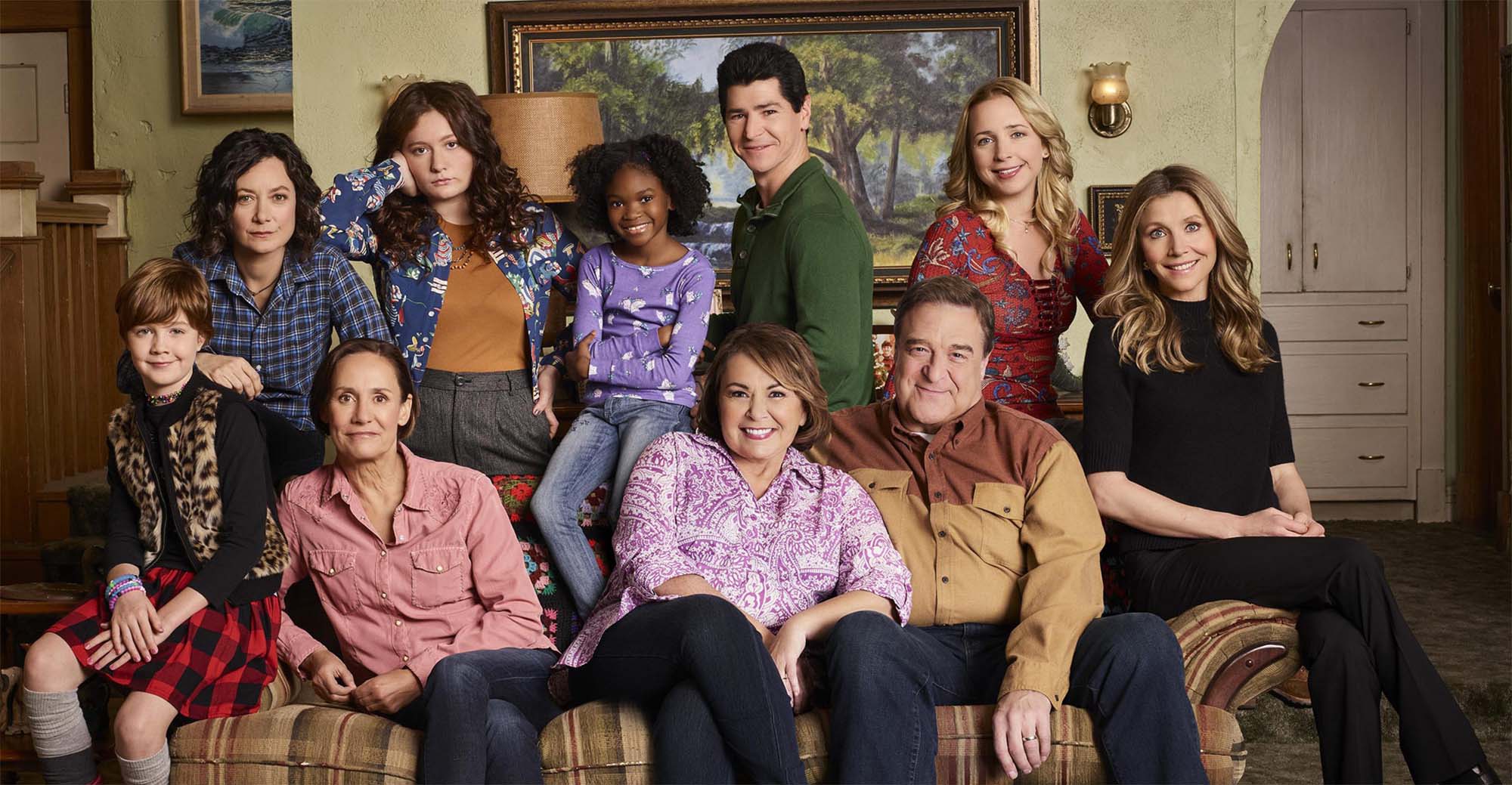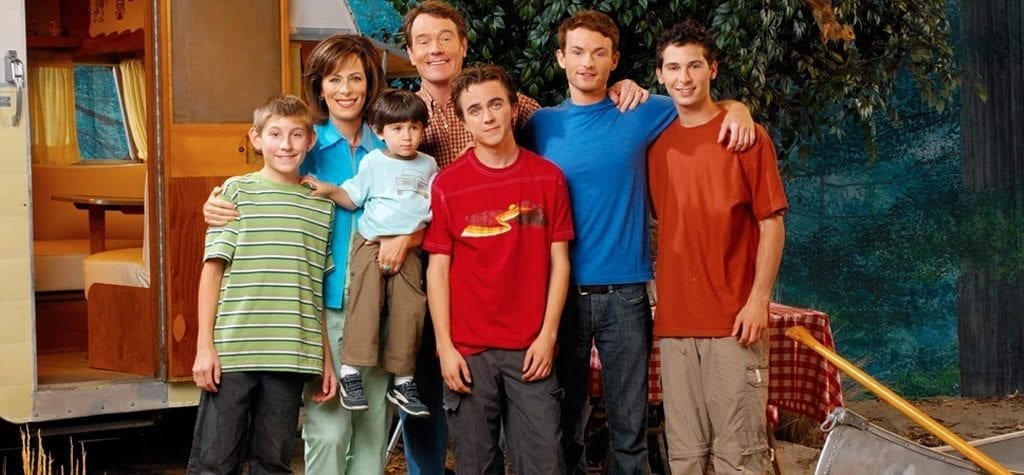
Roseanne’s return: Why aren’t there more working class families on TV?
Roseanne Barr once declared her titular comedy to be “television’s first feminist and working-class family sitcom (also its last).” Having premiered on ABC, the Roseanne reboot hinted Barr might not have been too far off the mark.
Rather than creating a whole new property reflecting the lives of modern working class women, ABC instead decided to dredge an old one out of the cancellation swamp. Sure, the act of rebooting the beloved comedy lacks innovation, but it also reflects an uncomfortable reality many Americans aren’t happy to face – life for working class families doesn’t appear to have changed much since the 90s.
As The New York Times’s review of the Roseanne reboot put it, “The Conners aren’t just preserved. They’re stuck. And they’re stuck in a way that underlines the show’s original mission of representing the kind of paycheck-to-paycheck life that other, more upscale sitcoms of the era left behind.” However, some things have changed in the show.

At this point, there’s been every op-ed possible exploring all conceivable angles regarding the controversy surrounding Roseanne and some of the behaviour of its creator. But as the divisive bickering between the otherwise close-knit Conner family in the Roseanne reboot highlights, you can still love something and fundamentally disagree with some of its values.
While the remake is challenging for some audiences, it at least proves an often neglected perspective on working class American life. Just a few days after the show premiered, a report revealed the Roseanne reboot “was a direct result of (a) post-Election Day initiative to pursue an audience that (ABC) had overlooked,” which perhaps points to the importance of representation and the impact of social frustrations.
It’s easy to speculate about issues with how working class people are (and aren’t) being depicted in the media, so why aren’t we seeing more working class portrayals in TV comedy?

Laughter of the working classes
Veteran TV writer Ken Levine (Frasier) once suggested it’s conventional wisdom within the TV industry “working class sitcoms will seem too depressing.” Instead, he suggested “viewers would rather escape to worlds where the jobs are cool, apartments are nice, and problems are ‘Am I going to get laid?’ rather than ‘Am I going to get laid off?’”
But there’s also the argument that comedy has the power to provide a cathartic release for working class people by directly addressing such issues with humor.
In her essay “TV Screening: The Entertainment Value of Poverty and Wealth”, June Deery (a professor of media and communication at RPI and author of Media & Class) highlighted that the idea “comedy can be a release mechanism when it exposes and thereby relieves pent up areas of discomfort and taboo” is a popular one.

With regards to TV comedies, Deery argued, “if recognizing class disparities makes a viewer uncomfortable or even prone to guilt, outing this and making stigma appear comic may relieve some of this moral discomfort.”
In compassionate comedies about working class families like Malcolm in the Middle, Mom, Fresh Off the Boat, and Jane the Virgin, the comedy is never served up at the expense of the family and their social class. Rather, they offer lighthearted insight into working class life that doesn’t veer far from reality.

Whether it’s Malcolm in the Middle’s Hal (Bryan Cranston) finding secret places to scream when he discovers his wife is unexpectedly pregnant with their fifth child or Christy (Anna Faris) and Bonnie (Allison Janney) bickering over how hygenic a cheap dish sponge is, comedy in such shows often delves into the unspoken strains of working class life.
They also offer the idea that financial difficulties don’t have to be portrayed in depressing ways to have value. Of course, in the real world there’s nothing funny about realizing your insurance doesn’t quite cover all of your health concerns (as Roseanne & Dan do in the Roseanne reboot.)
But there’s a worthwhile release involved in seeing those problems explored on screen in a lighthearted way. However, not every TV comedy about working class families has done this so well.

Laughter at the working classes
Overall depictions of the working classes on TV can often be a little churlish and insulting. In particular, comedies can portray many working class characters – and their lifestyles and struggles – in a way that pokes fun at their perceived inferiority. Speaking with Film Daily, author of White Working Class: Overcoming Class Cluelessness in America Joan C. Williams revealed respectful portrayals of working class characters are still few and far between.
“I haven’t seen the new Roseanne but that has always stood out as one of the few non-insulting depictions of the white working class in American television in the past 40 years. Much more common is the Archie Bunker of All in the Family or the Homer Simpson depiction of white working class men – either offensive or pathetic dullards. Unsurprisingly, people find it extremely insulting and it plays a role in poisoning American politics.”

The depictions of many white working class men on TV have rarely varied. Like Peter Griffin in Family Guy, Al Bundy in Married with Children, and most of the main men in both It’s Always Sunny in Philadelphia & Trailer Park Boys, they’re usually depicted as being hairbrained slobs amassing an endless array of everyday failures while indulging their most primal needs (food, sex, beer, or all of the above.)
With the exception of Homer Simpson’s maddening extended career, these characters are also rarely depicted as being hard working or even wanting to be seen as hard working. Instead they’re portrayed as being pretty hard living, which Williams pointed out as being a little disingenuous.
“The white working class, which is really the white middle class, focus on hard work and responsibility and self-discipline. Because those are the only things that get them up and to work every day to not very fulfilling jobs for forty years straight. They tend to look down on hard living people as lacking in self-discipline and therefore moral stature.”
Take a seat; share some space
On the other hand, it’s also easy to see how a comedy in which someone works extremely hard wouldn’t exactly solicit the chuckles. Drunkenly complaining about something with a hand down the front of their trousers? That’s funny. For some, that might be an everyday reality, but it speaks volumes that TV sitcoms are reliant on returning to these same caricatures time and again when striving for wisecracks.
The sad truth may be stupidity and alcoholism might simply be a better sell for audiences. But as Roseanne and the recently cancelled The Middle prove, there’s plenty of room for thoughtful, heartfelt, smart, and funny explorations of working class life. Stories are capable of portraying blue collar people with a little dignity while still developing complex characters with relatable and realistic flaws.
The Roseanne reboot offers an uncomfortable reflection of changing and challenging times from a perspective that’s long been overlooked. If working class families could be given more of their own stories on TV (without ridicule) we might not need to put so much pressure on the Roseanne reboot to deliver something it has little chance of achieving. Naturally, it’s imperfect. But then so is every family.



